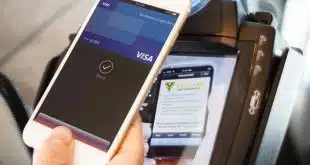The Chicago Transit Authority, an early proponent of open-loop fare payments, announced Monday that the general-purpose payment feature in some of its fare cards will expire Dec. 31. The operator of the nation’s second-largest transit system says riders did not embrace the idea of a CTA-provided general-purpose prepaid account coupled with a transit card.
The CTA’s fare-payment system, dubbed Ventra, is managed by Cubic Transportation Systems and includes First Data Corp. as a subcontractor. Among the fare options that became available when Ventra launched in 2013 under a 12-year, $454 million contract was a contactless Mastercard-branded prepaid card good at any Mastercard-accepting merchant as well as on CTA buses and “L” trains.

“After analyzing customer preferences and habits, CTA determined that there wasn’t significant demand for this feature,” the agency said in a press release. The CTA attributed that lack of demand in part to “the numerous prepaid debit products in the marketplace and electronic payment options like Apple Pay, Android Pay, and Samsung Pay, which have become more accessible and provide consumers with increased financial options, including the ability to pay their Ventra fares.”
New, closed-loop Ventra cards will go on sale starting Dec. 18, according to the release. Customers who have Ventra Mastercard cards can have their balances transferred to prepaid cards offered by First Data’s Money Network, which provides cards issued by Meta Financial Group Inc.’s MetaBank. Or, they can spend down their balances over the next three weeks or have their funds returned via check from Money Network.
A CTA spokesperson did not respond to a Digital Transactions News email requesting further comment.
The CTA will continue to accept open-loop media for fare payments issued by other entities that support contactless transactions, according to transportation-payments consultant Peter Quadagno of West Chester, Pa.-based Quadagno & Associates Inc. Besides the aforementioned mobile wallets, they include some general-purpose payment cards with EMV chips that also are equipped with near-field communication (NFC) antennas to enable contactless payments. There are few such “dual-interface” cards currently available in the U.S., however.
Although an increasing number of transit agencies are embracing open-loop contactless payments, especially through mobile wallets, few have issued general-purpose fare cards, Quadagno notes. The CTA is the only major system in the U.S. currently issuing such media, though the Southeastern Pennsylvania Transportation Authority (SEPTA) in Philadelphia is planning to offer a Mastercard-branded SEPTA Key card among its fare options. Transit agencies in New York City and Boston also are mulling general-purpose card issuance under new contracts with Cubic, Quadagno says.
General-purpose prepaid fare cards, which involve working with program managers and other entities, can be more expensive to provide than closed-loop fare media, according to Quadagno.
“They [agencies] have realized that the economics don’t work in the U.S., and so they’re backpedaling,” he says. “The lesson is, make sure you understand the business rationale before you go off and do it.”






